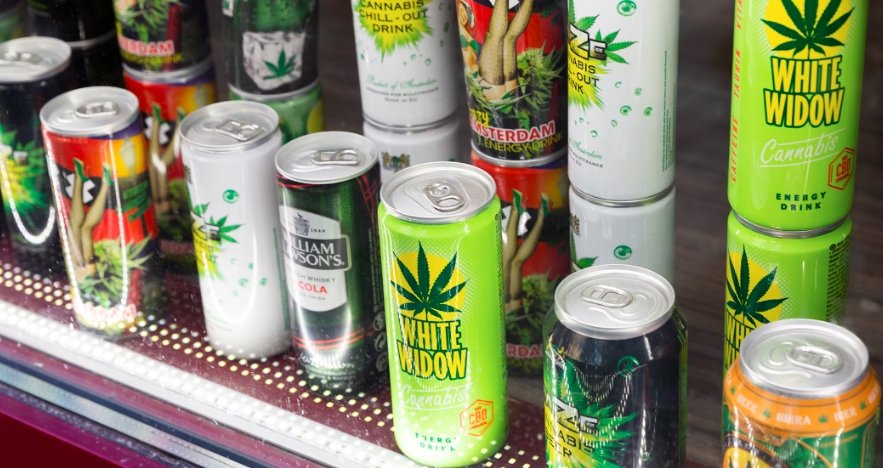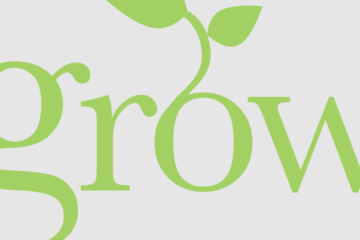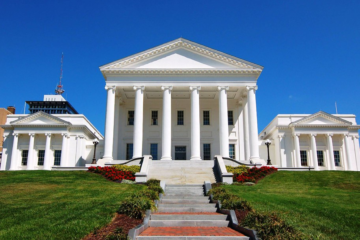Dry January, the annual trend of abstaining from alcohol for the first month of the year, has seen a surge in cannabis sales, especially among younger consumers. Many people are opting for cannabis-infused beverages as a substitute for alcohol, reflecting a shift in consumption habits and preferences.
Why are people choosing cannabis over alcohol?
According to a report from Bloomberg, alcohol sales in the US dropped by more than half in the first week of January 2024, the greatest decline since 2020. At the same time, a third of adults ages 21–24 and a fourth of adults ages 25–34 turned to cannabidiol (CBD) products as a replacement for alcohol.
One of the reasons behind this trend is the perception of cannabis as a safer and healthier alternative to alcohol. Cannabis has been shown to have various medical benefits, such as reducing pain, inflammation, anxiety, and seizures. Alcohol, on the other hand, can cause liver damage, addiction, hangovers, and impaired judgment.
Another reason is the availability and variety of cannabis-infused beverages in the market. Cannabis companies have been developing and launching new products that appeal to different tastes and preferences, such as sparkling water, tea, coffee, juice, and beer. These products offer a convenient and discreet way to consume cannabis, without the hassle of smoking or vaping.
How are cannabis companies capitalizing on Dry January?
Cannabis companies are aware of the growing demand for their products during Dry January and are actively marketing to potential customers. They are using social media, online platforms, and influencers to promote their brands and products, as well as offering discounts, deals, and giveaways.

Some examples of cannabis companies that are targeting Dry January consumers are:
- The Travel Agency, a cannabis dispensary that sells a variety of cannabis beverages, such as Hi-Fi Hops, a hoppy sparkling water infused with THC and CBD, and Lagunitas, a cannabis-infused IPA beer. The company has been using the hashtag #DryJanuary on Instagram and Twitter to showcase its products and encourage people to try them.
- Curaleaf Holdings, one of the largest cannabis companies in the US, that operates dispensaries, cultivation facilities, and processing plants. The company has been offering a 10% discount on all CBD products during January, as well as featuring its cannabis beverages, such as Select Squeeze, a THC-infused drink enhancer that can be added to any beverage, and Select Social, a line of low-dose THC and CBD sparkling waters.
- Canopy Growth, a Canadian cannabis company that has partnered with Constellation Brands, a leading alcohol producer, to create cannabis-infused beverages. The company has launched four products in the US market, such as Quatreau, a CBD-infused sparkling water, and Tweed, a THC-infused soda. The company has been advertising its products on digital billboards, podcasts, and online publications, as well as sponsoring events and podcasts related to Dry January.
What are the implications of the cannabis beverage boom?
The rise of cannabis beverages during Dry January indicates a larger trend of changing consumer behavior and preferences, as well as a growing acceptance and legalization of cannabis in the US and other countries. Cannabis beverages offer a new and innovative way to consume cannabis, that can appeal to a wider and more diverse audience, especially young adults who are looking for alternatives to alcohol.
However, there are also some challenges and uncertainties that cannabis companies and consumers face, such as:
- The lack of clear and consistent regulations and standards for cannabis beverages, such as dosage, labeling, testing, and packaging. Different states and countries have different laws and rules regarding cannabis, which can create confusion and inconsistency for both producers and consumers.
- The limited research and evidence on the effects and safety of cannabis beverages, especially in terms of interactions with other substances, such as alcohol, medications, and supplements. There is also a need for more education and awareness on how to consume cannabis beverages responsibly and moderately, as well as how to avoid potential side effects and risks.
- The competition and collaboration between the cannabis and alcohol industries, as well as other industries, such as health and wellness, food and beverage, and entertainment. Cannabis beverages can pose a threat or an opportunity for these industries, depending on how they adapt and innovate to meet the changing consumer demands and expectations.



